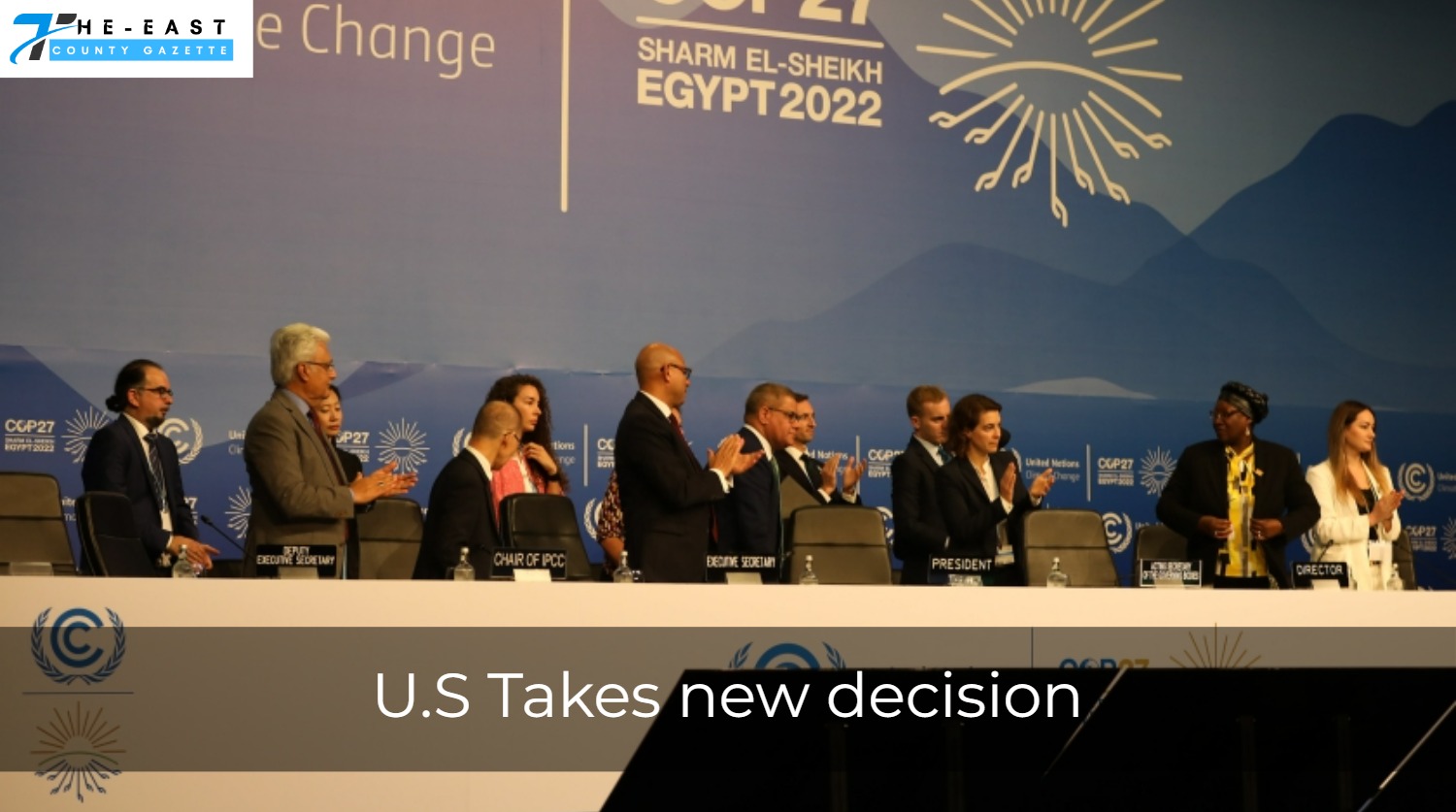According to the reports from the U.N. climate change meeting, the negotiations have taken a significant turn after the United States demonstrated a willingness to compensate nations suffering irreversible damage from the planet’s warming.
Late on Friday, as word of a prospective agreement was being passed to reporters in this Red Sea town, U.K., European officials indicated that the United States had helped create a proposal that calls for providing such payments to developing countries. The summit’s negotiations, which have lasted over two weeks, resumed on Saturday, a day past the initial deadline.
The exact ratio of public to private funds that could go into a pot of money to help countries cope with losses caused by climate change is only one of many aspects that would still need to be worked out.
U.S’s possible backing for establishing a climate damage fund represents a potentially seismic shift in its views

Critics from developing countries, who believe the United States is still avoiding responsibility for all the greenhouse gases it has poured into the atmosphere since the 19th century, may not be convinced by the idea.
The United States’ desire that China, the world’s largest carbon polluter, be included in the group of countries making financial contributions is another potential stumbling block. After 30 years of opposition, the
At home, where Republicans opposed to President Joe Biden‘s climate program are set to take over the House in January, this might draw harsh criticism. However, a U.K. official told that the statement was written by officials from the U.S., Canada, New Zealand, and Australia after being convened by Alok Sharma, a British member of parliament who oversaw the United Nations climate negotiations in Glasgow, Scotland, last year.
A two-year procedure is proposed that would culminate in creating “an effective fund” that attracts contributions
The currently circulating draught would broaden the sources and means of subsidizing disaster-stricken communities, although it has not yet been formally offered to the Egyptian leadership of the summit. It proposes a two-year procedure that would culminate in creating “an effective fund that attracts contributions from a wide variety of Parties and sources, including both public and private.”
The United States is the largest stakeholder in the World Bank and other development banks. Therefore the draft’s request to “Enhance the responsiveness” of international, multilateral, and bilateral financial institutions is likely an allusion to these countries. It requests the World Bank and the International Monetary Fund “contribute to financing arrangements… reacting to loss and damage.”
Harjeet Singh of Climate Action Network International, a group represented at the negotiations, criticized the language released on Friday, calling it “a further watered-down version of what the European Union presented before.”
According to the director of the global political strategy for the organization, Singh, “instead of establishing a new fund at COP27, as desired by developing nations, it just gives a vague method to defer the decision.” A proposal like this would delay the necessary measures to help those in a climate emergency

